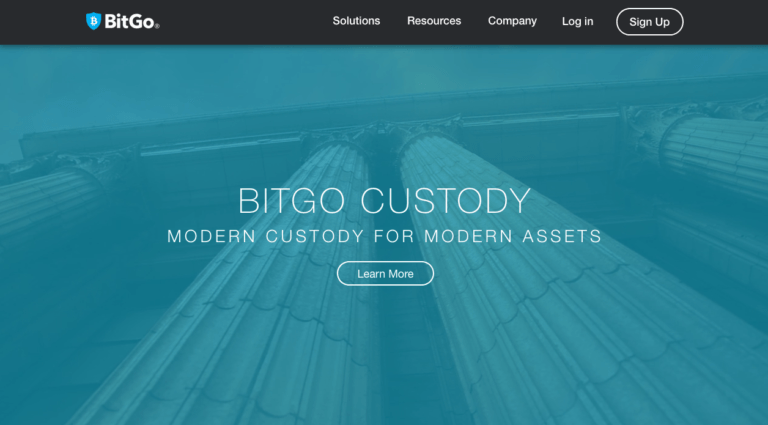On Thursday (13 September 2018), BitGo, one of the leaders in the crypto custody space, announced that it had become a “qualified custodian” by obtaining a South Dakota trust charter, which means that it is now even more attractive to institutional investors.
To understand the significance of this news, we need to be aware of a few things.
On 21 July 2010, U.S. President Barack Obama signed into federal law the Dodd–Frank Wall Street Reform and Consumer Protection Act (“Dodd-Frank Act”). One of the many changes to financial regulation introduced by this act was the requirement that any hedge fund with over $100 million in assets under managent register itself with the U.S. Securities and Exchange Commission as an investment adviser under the Investment Advisers Act of 1940 (the “Advisers Act”).
This is how the SEC defines “investment adviser”:
An investment adviser is a person or firm that is engaged in the business of providing investment advice to others or issuing reports or analyses regarding securities, for compensation. Investment advisers may include money managers, investment consultants, financial planners, general partners of hedge funds, and others who are compensated for providing advice about securities.
Rule 206(4)-2 of the Advisers Act, better known as the “Custody Rule”, regulates the custody practices of investment advisers registered under the Act; this rule “requires advisers that have custody of client securities or funds to implement a set of controls designed to protect those client assets from being lost, misused, misappropriated or subject to the advisers’ financial reverses.” In September 2003, the SEC issued a notice that said it was amending the custody rule; the amendments required advisers “that have custody to maintain client funds and securities with a broker-dealer, bank, or other ‘qualified custodian’.”
“Qualified custodians” under the amended rule include the types of financial institutions that clients and advisers customarily turn to for custodial services. These include banks and savings associations and registered broker-dealers.
A “bank” under section 202(a)(2) of the Advisers Act includes national banks, members of the Federal Reserve System, and other banks and trust companies having similar authority to national banks and supervised by state or federal banking agencies.
Although the SEC has said that it does not consider Bitcoin (BTC) to be a security, other cryptoassets might be (the SEC has not made it clear yet what is and isn’t a security). This means that for BitGo to be able to offer institutional investors such as large crypto hedge funds a qualified custody solution, it had to become a “qualified custodian” or acquire one. Although earlier in the year BitGo had tried to acquire Kingdom Trust (an existing independent qualified “alternative asset custodian”, which is registered as a public trust company in the U.S. state of South Dakota), by May, it had decided that it was better to become a qualified custodian itself rather than go ahead with the acquisition of Kingdom Trust.
This is how BitGo explained this decision in a blog post on 24 May 2018:
Over the last few months, we have worked closely with customers to understand their custodial needs and have realized that to offer the best custodial solution, we needed to build our own qualified custodial offering. As a result, we have decided not to move forward with the acquisition of Kingdom Trust.
Now, it is time to see what was announced by BitGo in Thursday’s press release.
What BitGo, which is a startup headquartered in Palo Alto, California, has done is register a public trust company (called “BitGo Trust Company”) in the state of South Dakota (regulated by that state’s Division of Banking), thereby effectively creating a “bank” under section 202(a)(2) of the Advisers Act, which means that BitGo Trust Company is a “qualified custodian.” Furthermore, BitGo claims that BitGo Trust Company is “the first qualified custodian purpose-built for storing digital assets.”
Mike Belshe, co-founder and CEO of BitGo said:
Custody has been the missing piece of cryptocurrency market infrastructure and this gap has kept institutional investors out of the market. Traditional custodians don’t have experience handling cryptocurrency. Exchanges that double as custodians present a conflict of interest and raise regulatory concerns. BitGo Trust Company is a qualified custodian, and therefore the only custody offering that delivers the highest levels of both security and regulatory compliance.
BitGo’s “BitGo Custody” solution for institutional investors offers:
- 100% cold storage technology in bank-grade Class III vaults;
- Support for storage of over 75 tokens and coins;
- Institutional-grade policy controls (such as multiple signatures and spending limits);
- Multi-user accounts; and
- Most importantly, regulatory compliance (since BitGo Trust Company is a qualified custodian)
Investing in crypto just got easier for institutional investors since they now have access to an experienced, respected, and qualified crypto custodian with five years of experience of dealing with cryptoassets and “a customer base that includes the world’s largest cryptocurrency exchanges and spans more than 50 countries.”
Featured Image Courtesy of BitGo









